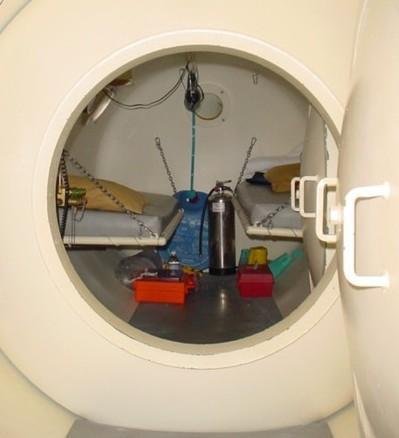The True Risks of Diving
Like any activity, there are risks associated with scuba diving. While serious accidents are rare, you need to understand and accept these risks before continuing with this course.
Possible risks of diving include, but are not limited to, drowning, barotrauma, decompression sickness, embolism, lung overexpansion, overexertion, heat exhaustion, hypothermia, cuts, scrapes, fractures, strains, and sunburn.
Most injuries are the result of diver error. This course will teach you how injuries occur, how to prevent them, and first aid procedures to follow in the unfortunate event one does occur.
Your instructor will ask you to sign a release of liability form during your first session. If you have any questions regarding the risks of diving, ask your instructor for more information before signing the release form.

Facing Your Apprehensions
This course will introduce you to unfamiliar equipment, environments, and marine life. A certain level of apprehension is normal, and your instructor understands any concerns you may have.
Everyone develops their skills at different paces, so don't judge your abilities based on the performance of others in the class. While some students are naturals and successfully complete the skills the first time they are attempted, this is not normal. Most students require several sessions to become comfortable with certain skills, and scuba courses are designed specifically for these students.
Your instructor will not force you to perform any skills against your will. You'll have several pool sessions, so there will be plenty of opportunities to learn the skills before you continue to the open water dives.